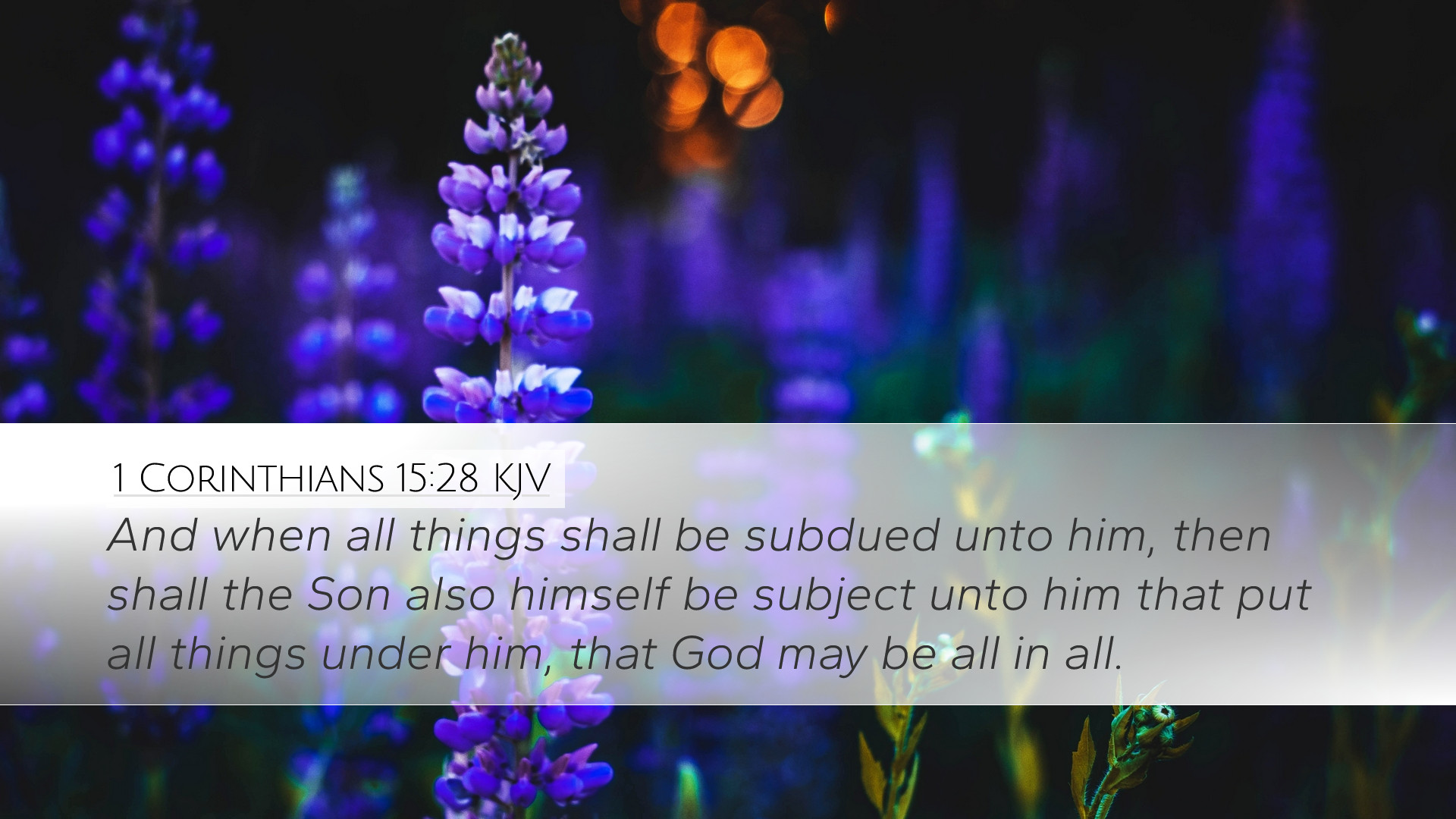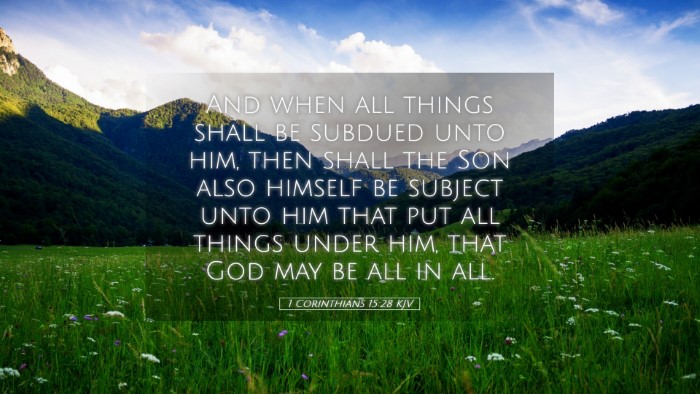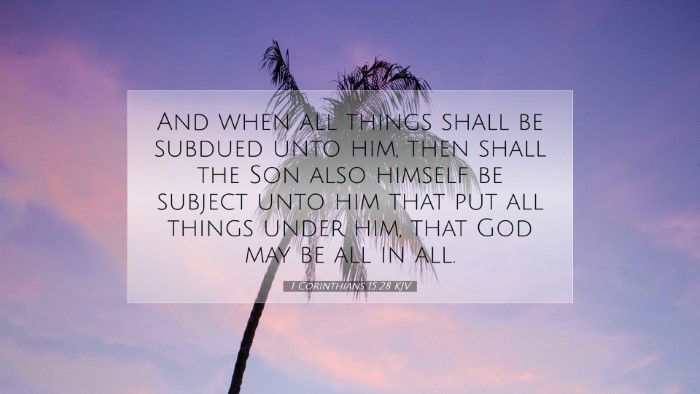Commentary on 1 Corinthians 15:28
Verse: "And when all things shall be subdued unto him, then shall the Son also himself be subject unto him that put all things under him, that God may be all in all." (1 Corinthians 15:28)
Introduction
This verse serves as a profound conclusion to the theological exploration of Christ's resurrection and ultimate authority within the framework of Christian eschatology. In understanding this passage, it is essential to consider the broader context of Paul's writing to the Corinthians, who were grappling with issues of resurrection and the role of Christ.
Overall Context
The Apostle Paul addresses the resurrection of Christ (1 Corinthians 15:1-22), the implications for believers (1 Corinthians 15:23-27), and culminates in this verse with the cosmic order of authority. He asserts that the subjugation of all things to Christ signifies a restoration of divine order, culminating in a moment where Christ himself will submit to God.
Exegesis of Key Themes
-
The Subjugation of All Things:
Paul emphasizes that all things will ultimately be brought under the dominion of Christ. Matthew Henry notes that this includes everything in heaven and earth, affirming the sovereignty of Christ over all creation. This reflects the fulfillment of God’s eternal purpose as outlined in Ephesians 1:10.
-
The Unity in the Godhead:
There is a profound declaration of the unity of the Father, Son, and the Holy Spirit. Albert Barnes highlights that, while Christ will be subject to the Father at the end time, this does not compromise His divinity. It is a relational submission that underscores the hierarchy present in the Godhead while affirming that the essence remains one.
-
Christ's Role in Redemption:
Christ's submission to the Father after subduing everything bears significant theological weight. Adam Clarke writes that Christ's role completes the redemptive work of God. By stepping into the role of being subject, He acknowledges the authority of the Father, enhancing the understanding of both submission and authority within Christian doctrine.
-
Universal Reconciliation:
The phrase "that God may be all in all" serves as a powerful conclusion, indicating that God's ultimate purpose is a unified reconciliation of all things. This revelation further manifests the significance of Christ’s leadership in the redemptive narrative, bringing forth the realization of a new heaven and new earth.
Theological Insights
This verse encapsulates essential themes of Christian theology: the supremacy of Christ, the mysterious relationship within the Trinity, and the final authoritative plan of God. The submission of the Son illustrates that authority does not equate to inferiority. As noted by Henry, this submission is voluntary and rooted in love and obedience.
Christ’s Exalted Position
Despite His submission, Christ's exaltation as Lord and Savior is not diminished. His unparalleled authority established through His resurrection underlines His position. Clarke stresses that this moment is not a relinquishing of power but a completion of His mission. Thus, Jesus remains central to God’s redemptive plan, demonstrating that achieving completeness involves both reign and submission.
The Impact on Believers
For believers, this passage provides both hope and a model for humility. Barnes points out that acknowledging Christ’s authority encourages personal submission to God's will, reflecting the order intended by God. Furthermore, understanding the final outcome assures believers of their ultimate victory over sin and death through Christ.
Conclusion
1 Corinthians 15:28 reveals the final cosmic order where Christ, having triumphed over all and having subdued creation, submits to the Father – highlighting both His authority and mutual respect within the Godhead. This doctrine not only provides great encouragement to believers but signifies the completeness of God's redemptive plan, where He is "all in all." The exploration of this passage should inspire pastors, students, and theologians alike to delve deeper into the mysteries of the Trinity, creation, and God's ultimate sovereignty.


